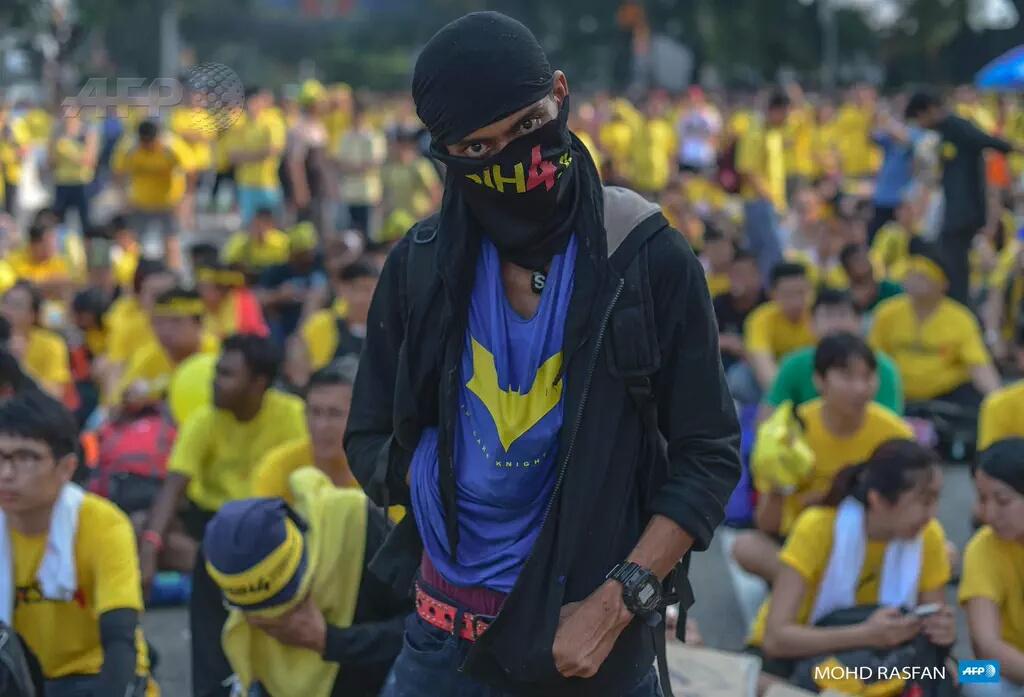American Teen Gets 11 Year Sentence For Pro-ISIS Tweets That Taught People How To Use Bitcoin
Tweeting about Bitcoin and saying that ISIS needs a website is a crime?
Earlier this summer, the DOJ proudly announced that a Virginia teenager, Ali Shukri Amin, had taken a plea deal for “providing material support to ISIL” (the terrorist organization that everyone outside of the US government calls ISIS). This is back in the news now that Amin has been sentenced to 11 years in prison.
Let’s get this out of the way: ISIS is clearly a horrific and dangerous
organization. But does what Amin did really deserve 11 years in prison?
The details of the case against him also seem to raise some serious
First Amendment questions about what counts as “material support.”
First: the one area where Amin’s actions do seem fairly questionable
are when he helped another Virginia teen travel to Syria, apparently to
join ISIS. That part definitely seems like it stepped over the legal
line. But, the rest of the charges against him seem… like a teenager
using Twitter and other social media to discuss stuff he’s interested
in. Amin ran a Twitter account called @AmreekiWitness, which had about
4,000 followers. He tweeted pro-ISIS propaganda, but that still seems to
be a form of protected speech, last I checked. And, his big “crime”
appears to be linking to an article about why ISIS supporters should use
Bitcoin.The following are examples of the defendant’s use of Twitter in furtherance of his conspiracy to provide material support to ISIL:
On or about July 7, 2014, using the @AmreekiWitness account, the defendant tweeted a link to an article he authored entitled “Bitcoin wa’ Sadaqat al-Jihad” (Bitcoin and the Charity of Jihad). The link transferred the user to the defendant’s blog, where the article was posted. The article discussed how to use bitcoins and how jihadists could utilize this currency to fund their efforts. The article explained what bitcoins were, how the bitcoin system worked and suggested using Dark Wallet, a new bitcoin wallet, which keeps the user of bitcoins anonymous. The article included statements on how to set up an anonymous donations system to send money, using bitcoin, to the mujahedeen.The defendant also operated an Amreeki Witness page on the website ask.fm. The defendant used these accounts extensively as a platform to proselytize his radical Islamic ideology, justify and defend ISIL’s violent practices, and to provide advice on topics such as jihadists travel to fight with ISIL, online security measures, and about how to use Bitcoin to finance themselves without creating evidence of crime, among other matters.
On approximately August 1, 2014, the defendant showed support for ISIL and his desire to help garner financial support for those wanting to commit jihad. Through @AmreekiWitness the defendant discussed methods to provide financial support for those wanting to commit jihad and for those individuals trying to travel overseas.
On approximately August 19, 2014, the defendant showed support for ISIL and desire to support ISIL. The defendant tweeted that the khilafah needed an official website “ASAP,” and that ISIL could not continue to release media “in the wild” or use “JustPaste.” Through various tweets, the defendant provided information on how to prevent the website from being taken down, by adding security and defenses, and he solicited others via Twitter to assist on the development of the website.
The defendant also created the pro-ISIL blog entitled, “Al-Khilafah Aridat.” On this blog, the defendant authored a series of highly-technical articles targeted at aspiring jihadists and ISIL supporters detailing the use of security measures in online communications to include use of encryption and anonymity software, tools and techniques, as well as the use of the virtual currency Bitcoin as a means to anonymously fund ISIL.
Tweeting about Bitcoin and saying that ISIS needs a
website is a crime? One that deserves over a decade in jail? Obviously,
aiding ISIS in any way is incredibly stupid, but it seems like a pretty
slippery slope to argue that teaching people how to use Bitcoin or
saying that ISIS needs a website rises to the level of “material support
for ISIS” by itself. It seems like such a definition could lead to
many, many people at risk. If you disagree with US policy for dealing
with ISIS and say so — at what point does it cross over the line? It
seems way too easy to twist this into criminalizing dissent, rather than
actually supporting a designated terrorist organization.
I’m all for coming up with ways to stop the spread of ISIS, and
to prevent further attacks by the group. But jailing an American
teenager over his tweets seems… excessive. http://www.infowars.com/american-teen-gets-11-year-sentence-for-pro-isis-tweets-that-taught-people-how-to-use-bitcoin/

















